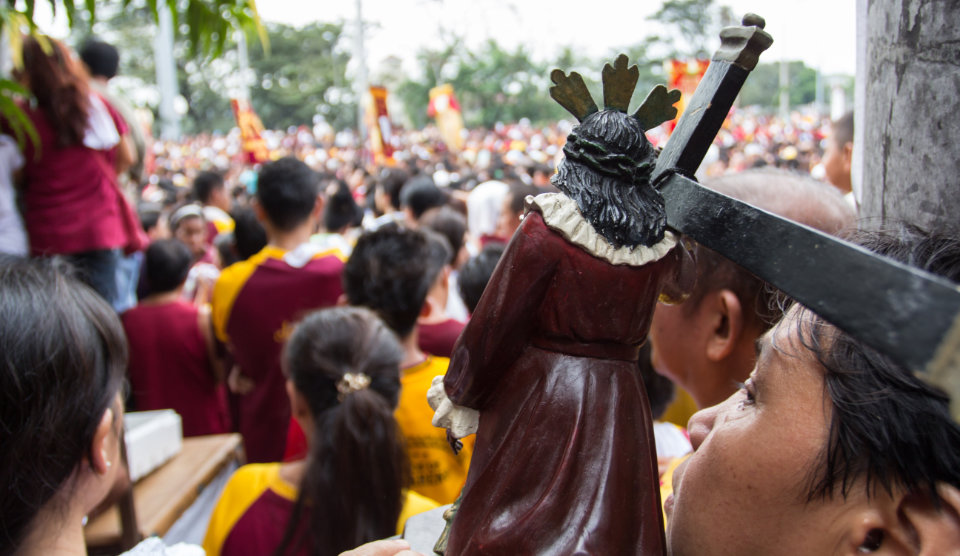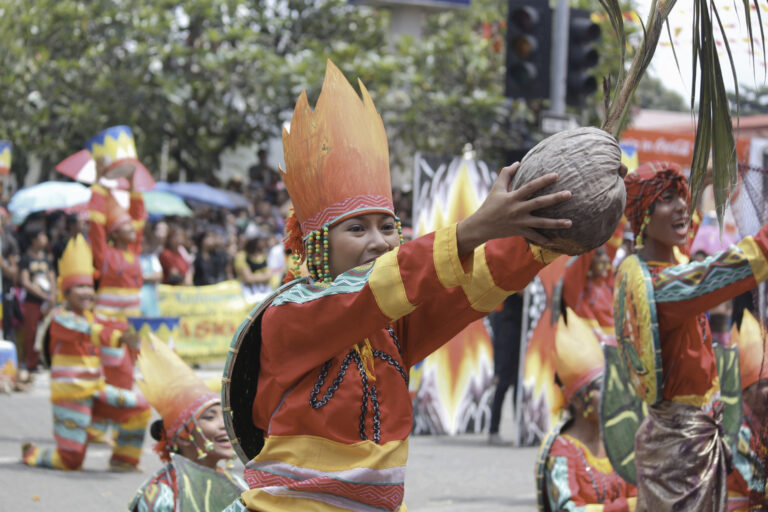Venture into the enchanting world of Filipino culture, where a kaleidoscope of Filipino superstitions weaves through the fabric of daily life, casting a spell of wonder and mystique.
In the Philippines, a whisper of folklore can be found in every corner, from the bustling streets of Manila to the UNESCO Rice Terraces of the Philippine Cordilleras.
These superstitions, a vibrant blend of ancient lore and colonial influence, are not just remnants of the past; they are pulsating threads in the living tapestry of Filipino society.
Embark on a journey through this mystical landscape, where every belief tells a story, every ritual carries a legacy, and every superstition holds the power to connect us to the unseen forces of the universe.
Table of Contents
Historical Roots of Filipino Superstitions
The origins of Filipino superstitions are a complex blend of indigenous beliefs and Spanish colonial influences.
The integration of animism, folklore, and early religious practices has created a unique cultural landscape where superstitions flourish. These beliefs have evolved over centuries, reflecting the dynamic nature of Filipino culture.
Filipino Health Superstitions
In the Philippines, health and wellness are often intertwined with age-old superstitions, reflecting a unique blend of folklore and traditional wisdom. These beliefs, passed down through generations, serve as a cultural approach to healthcare and protection.
- ‘Usog’ and the Power of Saliva: A prevalent belief is that a compliment from a stranger can cause illness or discomfort to a child, known as ‘usog.’ The remedy often involves the stranger placing saliva on the child’s forehead or stomach, believed to ward off the negative energy. This practice stems from the ancient belief in the power of words and intentions, where saliva is seen as a medium of good energy to counteract the bad.
- ‘Anting-anting’ for Protection: Many Filipinos believe in the protective powers of ‘anting-anting,’ a type of amulet or talisman. These objects are thought to ward off evil spirits, bring good luck, and protect against harm. The origin of this belief lies in the pre-colonial animist traditions, where objects were believed to be inhabited by spirits or energies.
- Biting Your Tongue Indicates Someone’s Thoughts: If you bite your tongue accidentally, it suggests someone is thinking about you. Choosing a letter corresponding to a number from 1 to 26 reveals who it might be. This belief reflects the idea of interconnected energy and thought.
Filipino Beliefs in the Supernatural
Filipino folklore is rich with supernatural entities and beliefs, reflecting a deep respect and fear of the unseen world. These tales serve as a testament to the Philippines’ diverse cultural heritage.
- ‘Aswang’ – The Shape-shifting Creature: The ‘aswang’ is a notorious creature in Filipino folklore, believed to be a vampire-like being that preys on humans and animals. This superstition likely originated as a way to explain unexplained deaths and illnesses in rural areas, serving as a cautionary tale to stay indoors at night and protect one’s family.
- ‘Duwende’ – Mischievous Dwarfs: ‘Duwende’ are small, dwarf-like beings thought to inhabit houses and surrounding areas. They can either bring good luck or misfortune, depending on how they are treated. The belief in ‘duwende’ reflects the animistic roots of Filipino culture, where spirits are believed to inhabit natural elements and spaces.
Filipino Beliefs in Pregnancy
Pregnancy in the Philippines is surrounded by a myriad of beliefs and practices, deeply rooted in the desire to ensure the health and safety of both the mother and the unborn child.
- Avoiding Eclipse Exposure: Pregnant women are advised to stay indoors during an eclipse. It’s believed that exposure can lead to birthmarks or deformities. This superstition likely stems from ancient understandings of celestial events as powerful and sometimes ominous occurrences.
- Food Taboos: Certain foods are avoided during pregnancy, as they are thought to affect the baby’s development. For instance, eating twin bananas could lead to twins. These beliefs reflect the deep-seated concern for prenatal influences on the child’s health and future.
Filipino Building Beliefs
Superstitions play a crucial role in building and construction in the Philippines, often guiding the choice of residence and the construction process.
- ‘Pagpag’ Ritual for Good Luck: The ‘pagpag’ ritual involves scattering coins around a new home or business for good luck and prosperity. This practice stems from the belief that prosperity can be invited and secured through ritualistic means.
- Avoiding ‘T-junction’ Houses: Houses located at the end of a ‘T-junction’ are often avoided, as they are believed to attract negative energy. This belief is likely rooted in ancient Feng Shui, where the flow of energy and its impact on inhabitants were carefully considered.
- Staircase Step Count: The number of steps in a staircase should not be divisible by three. This is to ensure the ‘oro, plata, mata’ chant doesn’t end on ‘mata,’ which symbolizes bad luck. This belief is linked to the desire for continuous upward progression in life.
Filipino Family Beliefs
Family life and relationships in the Philippines are heavily influenced by a range of superstitions, reflecting the deep familial bonds and the importance placed on social harmony.
- Wedding Day Omens: Numerous superstitions surround Filipino weddings. For example, rain on the wedding day is seen as a sign of blessing and abundant life. This belief likely stems from the agrarian society’s reverence for rain as a life-giving force.
- Birth Rituals: Newborns are often subjected to various rituals for good health and fortune. For example, placing an object like a book under the baby’s pillow is believed to ensure intelligence. These practices reflect the communal hope and aspirations for the new member of the family.
Filipino Christmas and Festive Superstitions
Christmas in the Philippines is a time of joyous celebration, imbued with unique superstitions and traditions that blend religious faith with cultural beliefs.
- ‘Simbang Gabi’ Wishes: Completing the nine-day ‘Simbang Gabi’ (night masses before Christmas) is believed to grant one special wish. This tradition reflects the deep Catholic faith in the Philippines, merged with the indigenous belief in the power of ritual and perseverance.
- New Year Rituals for Prosperity: Jumping high as the clock strikes midnight on New Year’s Eve is believed to increase one’s height. This is part of a wider set of New Year rituals aimed at attracting prosperity and good fortune, showcasing the Filipino optimism and hopefulness.
- Not Sweeping at Night: Sweeping the floor at night is considered ‘malas’ or unlucky, as it is believed to sweep away good fortune.
- Not Opening Umbrellas Indoors: It’s considered bad luck to open an umbrella inside a house as it’s believed to block or offend the good spirits in the home. This superstition is linked to ancient Egyptian beliefs where umbrellas were seen as sacred.

Filipino Religious Beliefs
The intersection of Catholicism and indigenous superstitions in the Philippines creates a distinct religious landscape, where faith is often intertwined with traditional beliefs.
- Holy Week Superstitions: During Holy Week, many Filipinos abstain from noisy activities and meat consumption, believing that reverence during this time brings blessings. This practice demonstrates the blend of Catholic doctrines with local customs and the collective respect for sacred times.
- All Souls’ Day Rituals: On All Souls’ Day, families visit cemeteries to clean graves and offer prayers, food, and flowers to departed loved ones. This practice reflects the syncretism of Catholic beliefs with indigenous views on ancestor reverence and the afterlife.
- Don’t Go Straight Home After a Wake (‘Pagpag’): After attending a wake, it is customary to go elsewhere before returning home. This is believed to prevent the spirit of the deceased from following you. This practice reflects the deep respect for the departed and the spiritual realm.
- Reassure Your Host of Your Humanity (‘Tao Po’): When knocking on a door, Filipinos often say “Tao po,” which is believed to reassure the occupants that the knocker is a human, not a supernatural being. This reflects an ingrained belief in the supernatural.
- Siblings Should Not Marry Within the Same Year (‘Sukob’): This superstition advises against siblings marrying in the same year to avoid dividing the luck between marriages. It reflects the belief in shared familial fortunes and misfortunes.
Traditional Filipino Superstitions Additions:
- Avoid Giving Shoes as Gifts: Giving shoes as gifts is believed to symbolize the receiver walking away from you. To counteract this, the receiver should give a small amount of money in return. This reflects the belief in symbolic actions influencing relationships.
- Itchy Palms Signify Incoming Wealth: An itch in the palm is often interpreted as a sign of incoming money. This superstition highlights a belief in physical sensations as indicators of future events.
- Plate Turning for Safe Travels: When someone leaves the table during a meal, others should turn their plates to ensure the person’s safe travels. This practice is linked to the belief in actions influencing fate and fortune.
Filipino Superstitions in Modern Society
Despite modernization, Filipino superstitions continue to thrive. They remain relevant among the youth and in various social contexts, evolving with the times yet retaining their core essence. This persistence underscores the deep cultural roots and the importance of these beliefs in the Filipino way of life.
Filipino Superstitions in Media and Comparative Cultural Analysis
Filipino superstitions are often depicted in media and literature, playing a role in preserving these traditions. Comparatively, they share similarities with other cultures, particularly those with Spanish influence, yet retain unique characteristics that set them apart.
The Enduring Legacy of Filipino Superstitions
Filipino superstitions are more than mere folklore; they are a vital part of the nation’s cultural heritage. They offer insight into the values, fears, and hopes of the Filipino people, underscoring the rich cultural diversity of the Philippines.
As these superstitions continue to be passed down through generations, they remain a testament to the enduring spirit and unique identity of the Filipino people.
Curious about how these Filipino superstitions might be influencing your life and fortune? Contact us to explore deeper insights and discover more about your personal life fortune reading.
Why is serving pancit at Filipino birthdays important?
Serving pancit, or noodles, at Filipino birthdays is a significant tradition rooted in the belief that long noodles symbolize long life. This practice, influenced by Chinese culture, reflects the wish for longevity and prosperity for the person celebrating their birthday.
What does an itch on the palm signify in Filipino superstitions?
In Filipino superstitions, an itch on the palm is often seen as a sign of forthcoming financial gain. It’s believed that if your palm itches, you might receive money soon. This superstition highlights the connection Filipinos make between physical sensations and future events.
What does pointing at trees at night signify in Filipino culture?
Pointing at trees at night is considered bad luck in Filipino culture. It’s believed that trees are home to spirits, and pointing at them, especially at night, could offend these spirits. To avoid bad luck, one must bite their finger if they accidentally point at a tree.
What does giving shoes as a gift mean in Filipino superstitions?
In Filipino superstitions, giving someone shoes as a gift is thought to mean that the receiver will ‘walk away’ from you or leave your life. To counteract this, the receiver should give a small amount of money in return, symbolizing the purchase of the shoes and preventing the negative outcome.



